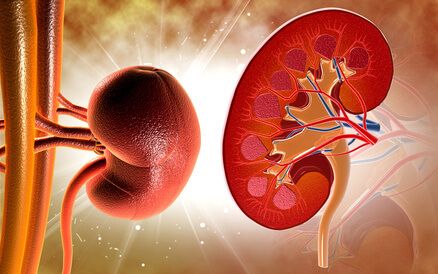Cardiovascular disease is one of the main causes of morbidity and mortality in patients with advanced chronic kidney disease (CKD), and vice-versa. Both diseases share risk factors, including, but not limited to, diabetes, high blood pressure, smoking, dyslipidemia, and old age. As kidney disease develops, its severity grade has been linked to more thrombotic events…
5-year TVF and MACCE in patients with deferred of revascularization after FFR: Is FFR enough?
Fractional flow reserve (FFR) has been shown effective and safe by different studies, yet not at 5 years. The aim of this multicenter registry was to assess the impact of thrombotic risk (as per CREDO-Kyoto score) as a predictor of cardiovascular events at 5 years in patients with deferred revascularization after FFR measurement. The score…
April 7th | Medtronic-SOLACI Masterclass with Gregg Stone: Revascularization in Patients with Multivessel Lesions
Join us in the third Medtronic-SOLACI masterclass with Dr. Gregg Stone (USA) and renowned Latin-American panelists. In this last session of this cycle of 3 masterclasses organized alongside Medtronic, Dr. Stone will discuss revascularization in patients with multivessel lesions. Date: April 7th, 2022, at 07:30 p.m. (Argentina/Brazil time, UTC -3). As usual, this event is…
ISCHEMIA: Prognosis is Determined by Anatomy, not Functionality
The ISCHEMIA study keeps providing scientific news. This work in patients with stable coronary artery disease had already shown (to our surprise) that ischemic burden does not predict 4-year mortality. Now, this new analysis suggests that anatomic severity can predict events. However (surprisingly, once more), altering this severity through angioplasty does not change the prognosis…
Revascularization Is Needed Before TAVR
Disease prevalence in patients with severe aortic stenosis is highly variable: from 80% in inoperable patients to only 15% according to the most recent research including low-risk patients. Given the high mortality observed in patients with heart disease, guidelines suggest considering coronary bypass revascularization in those in need of a valve replacement. This experience with…
ISCHEMIA: New Analysis Might Change Study Outcome Interpretation
A new ISCHEMIA analysis has shown its outcomes are highly dependent on MI definition. The original conclusion had shown a significant difference between invasive and conservative strategies using the most sensible definition of MI: troponin elevation. When looking at events using MI definition as troponin elevation, we will see the conservative treatment reduces primary end…
High Risk Anatomy Challenges ISCHEMIA Outcomes
According to this recent analysis published in JAHA, patients with stable Ischemic heart disease and high-risk anatomy benefit from revascularization at long term vs. the conservative treatment. This goes against the study presented by Reynolds H et al at AHA 2020. Dr. Reynold’s was a sub-study of the ISCHEMIA trial which had observed that even…
AHA 2020 | Effect of Evolocumab in Complex Coronary Revascularization
Evolocumab, a PCSK9 inhibitor, has shown significant reduction of complex coronary disease requiring revascularization (be it PCI or CABG). Proprotein convertase subtilisin/kexin type 9 (PCSK9) inhibitors induce plaque regression and could eventually reduce the risk of coronary revascularization, especially complex revascularization. The FOURIER study randomized 27564 patients with stable CAD already on statins to evolocumab…
ESC 2020 | Revascularization Strategies: Ventricular Dysfunction Might Tilt the Scales
Patients included in the ISCHEMIA trial who had a history of cardiac failure or ventricular function deterioration will benefit from revascularization vs. optimal medical treatment. This is a pre-specified analysis of the paradigmatic ISCHEMIA trial. The ISCHEMIA was published in March 2020 in NEJM and went somewhat unnoticed due to the COVID-19 pandemic. At the…
Long Term Changes ACS Revascularization
Long term outcomes support complete revascularization in multivessel patients undergoing acute coronary syndrome (ACS). This large contemporary registry recently published in J Am Coll Cardiol Intv. has shown complete revascularization is gaining ground in the daily practice and is associated to clinical benefits in patients undergoing ACS. It included 9094 individuals with ACS and multivessel…







